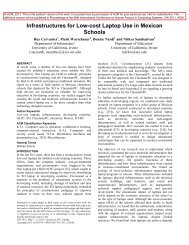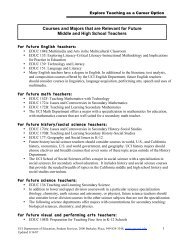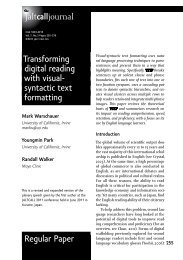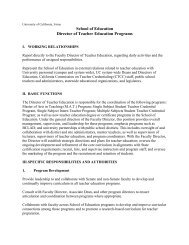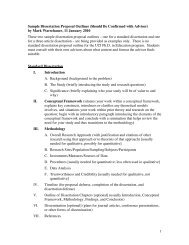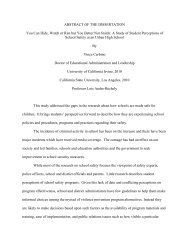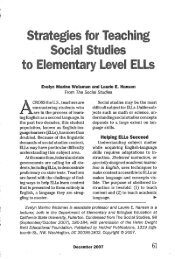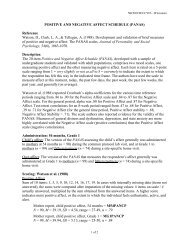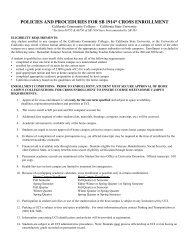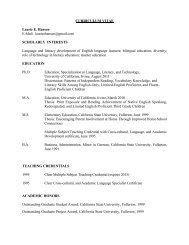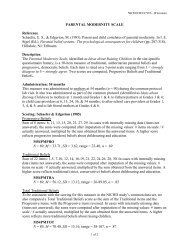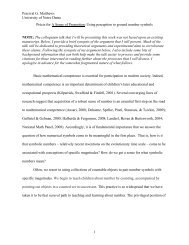NETWORK-BASED LANGUAGE TEACHING
NETWORK-BASED LANGUAGE TEACHING
NETWORK-BASED LANGUAGE TEACHING
Create successful ePaper yourself
Turn your PDF publications into a flip-book with our unique Google optimized e-Paper software.
288 R. KERN, P. WARE AND M. WARSCHAUERstagnated in terms of developing better theories of online language use.Related to technocentrism is the concern that technology-mediated languagelearning is becoming more and more commercialized, that is,packaged into convenient software programs and marketed to massaudiences. If the technology is attractive, it will tend to woo customers,regardless of the quality of its content or empirical base. In this regard,educators need to become critical consumers, just as their students needto evaluate online sources critically.Finally, a number of methodological and ethical issues arise as well.Due to the short-term duration of most NBLT studies, a great deal morelongitudinal research is needed to examine the effects of NBLT acrosstime. Tracking language learning through year-long or multiyear studieshelps mitigate, for example, concerns about how the novelty oftechnology might affect learner outcomes. Furthermore, longitudinalstudies provide a more adequate basis for understanding how languagelearning might transfer across skill areas, as researchers are betterpoised to track students across multiple contexts of use.Ethically, a key methodological issue has to do with subjects’informed consent to participate in research (and the real difficulty ofmaintaining student privacy in the virtual world.) It is easy to collectdata on the Internet without subjects’ knowledge or consent, andbecause boundaries between what is private and public are oftenunclear, it is essential that researchers follow procedures for obtaininginformed consent of subjects. Other ethical issues involve copyright/intellectual property issues, which are especially thorny in multimodalityprojects in which students download images, sounds, text, andvideo off the Internet. This is of course also tied to issues of plagiarismthat tend to coincide with the easy access of technology-mediatedlearning.FUTURE DIRECTIONSAs the field of NBLT develops in the coming years, research is neededthat continues many of the strands discussed earlier. In addition, weanticipate that research will grow in a number of other areas.First, more work is needed that explores multimodal learning contexts.Computers have had an impact on the ways we communicate.To date, the research conducted on computer-mediated communicationhas been mostly text-based, but now image and voice are becomingintegral parts of how we interact and represent ourselves online.As digital media become more readily available to wide audiences ofusers, teachers and students are increasingly able to develop novelways of integrating multiple modes of learning into the languageclassroom. In some cases, such integration will certainly take the form



